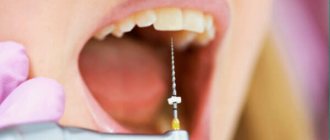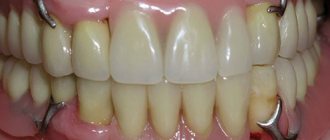June 01, 2020
Cheilitis is an inflammatory process that affects the border, mucous membrane and skin of the lips. The disease has a long-term recurrent nature.
Cheilitis is an inflammatory process that affects the border, mucous membrane and skin of the lips. The disease has a long-term recurrent nature. In young people, the course is more favorable and self-healing is possible. In old age there is a risk of leukoplakia and malignancy.
Symptoms of cheilitis
The disease manifests itself in a variety of symptoms; common complaints include swelling, redness, peeling of the lips, the appearance of bleeding ulcers, purulent crusts, burning and pain when opening the mouth and eating.
There are several forms of this pathology:
- Catarrhal
- Glandular
- Exfoliative
- Eczematous
- Candida
- Allergic
The causes of catarrhal cheilitis are usually injuries, weather conditions, and chemical damage. This form of the disease manifests itself in the form of diffuse inflammation of the lips, swelling, redness, and peeling.
With glandular cheilitis, the mucous glands of the lips become inflamed. The disease can occur against the background of injuries with the addition of infection. The presence of bad habits can also contribute to the development of this form of cheilitis.
The disease manifests itself as enlarged glands, discharge of pus, and increased lip volume. Often, as a result of such an inflammatory process, the lips do not restore their previous shape, since changes in the form of cysts form in the labial glands.
Exfoliative cheilitis is divided into dry and exudative. Exfoliative cheilitis is more common in women. With dry exfoliative cheilitis, yellow scales appear on the lips and dryness is pronounced. In addition, the red border of the lips is affected by dyskeratosis.
The exudative form of exfoliative cheilitis is characterized by severe pain, swelling of the lip, and the presence of abundant crusts that make speech and eating difficult. Sometimes the crusts hang down in the form of an apron when the exudative phenomena are significant. Candidal cheilitis is provoked by the fungal infection Candida albicans, and this form of the disease is often combined with stomatitis.
Various allergens can cause another form of cheilitis - eczematous. This type of cheilitis occurs when there is an allergy to cosmetics, a lack of B vitamins in the body, or chronic injury to the lips. In addition, allergic (eczematous) cheilitis occurs due to increased sensitivity of the red border of the lips to chemicals (for example, dyes) included in toothpaste, lipstick, and dentures. It occurs with swelling and redness of the red border of the lips, then becomes covered with abundant scales and crusts, and painful cracks form in places.
What is suitable for healing
When choosing lip products, you need to pay attention to certain points. Firstly, the ointment must contain components that create a protective layer and retain moisture. These include beeswax and paraffin.
It is ideal if the composition contains hydrants, that is, substances that attract and retain moisture. These include coconut oil, hyaluronic acid, propylene glycol and so on. Secondly, for those who are often exposed to sunlight, experts advise using products with an SPF factor. And it is also important to give preference to preparations with vitamin complexes, oils and plant extracts.
Prevention
As you know, prevention is cheaper than treatment. In addition, preventing a disease is much easier than curing it, although this will require regularly following some rules.
Pay more attention to oral hygiene. To prevent the formation of cracks, it is necessary to protect the skin and mucous membranes of the mouth from adverse effects: unlearn the habit of licking the lips and corners of the mouth, use medicinal cosmetics for dry skin (lipstick, balm, cream). To avoid infection of the skin of the lips from the oral cavity, it is necessary to regularly brush your teeth, see a dentist, and promptly treat caries and inflammatory gum diseases.
Follow the rules of nutrition. If cracks appear in the corners of the mouth, exclude from the diet spicy, sour and salty foods that irritate the mucous membrane and skin. Include less acidic fruits and vegetables in your daily diet, as well as foods containing iron and riboflavin (beef, liver, dairy products, cabbage, potatoes, peanuts, almonds and others).
Give up bad habits. Smoking is a provoking factor in the development of this disease.
Ointment "Solcoseryl"
Healing ointment for lips "Solcoseryl" is a complex product that accelerates cell regeneration processes. The main active ingredient is hemoderivat, that is, the blood of calves. Proteins are removed from it in the laboratory. This processing method makes it possible to preserve biological properties and at the same time eliminate the risk of prions (microscopic protein causative agents of dangerous ailments).
Hemodrivat is part of the group of activators of regeneration processes. Thanks to it, the process of cell reproduction and division is accelerated, so the skin is restored much faster. The substance participates in cell metabolic processes, stimulates the transport of oxygen, glucose and other nutrients.
Solcoseryl healing lip ointment contains:
- hemodialysate;
- cholesterol, which is used to create cell membranes;
- cetyl alcohol, which saturates the skin with moisture and retains it even in deep layers;
- Vaseline, which acts as an auxiliary component and forms a protective layer on the lips.
The main contraindication to the use of the product is hypersensitivity to the components. The ointment is safe to use and has no contraindications for age. It can be used by pregnant and lactating women.
Treatment of cheilitis
Treatment of the disease depends on the causes of its occurrence. For example, to treat allergic cheilitis, drugs are used that reduce the body’s sensitivity to allergens - antihistamines, as well as vitamins. Zinc ointment, anti-inflammatory creams containing glucocorticoids, salicylic acid, and sulfur are used externally. Avoid substances that irritate the mucous membrane of the mouth and lips. After eating, rinsing with chamomile infusion or soda is useful. To determine the allergen, it is necessary to conduct allergy tests.
For fungal cheilitis, antifungal drugs are prescribed in combination with vitamin B2 and ascorbic acid. An examination by a dentist and, if necessary, complete sanitation of the oral cavity and thorough treatment of problem areas with oil solutions of vitamins are recommended. To prevent relapses, a diet with limited carbohydrates is prescribed. In the treatment of exfoliative cheilitis, corticosteroid and photoprotective ointments, 2% boric salicylic acid ointment are widely used. In the presence of an exudative form of exfoliative cheilitis, Bucca radiation is effective.
Diagnosis of this disease is carried out by several doctors: a therapist, a dentist, an allergist. A combination of systemic (general) and topical (local) drug therapy produces a good effect.
Back to articles
Contraindications
Like many drugs, Levomekol has contraindications:
- individual intolerance to the components of the medication;
- hypersensitivity of the body;
- fungal infections of the epidermis;
- tendency to allergic reactions;
- psoriasis.
The official instructions for use indicate that in pediatrics the ointment is prescribed starting from 3 years of age. However, many pediatricians, based on the harmlessness of Levomekol, allow its use from infancy.
Ointment "Bepanten"
Ointment for cracked lips with a healing effect “Bepanten” effectively combats the problem. The main active ingredient is multivitamin B5, which helps restore cells, moisturizes and nourishes the skin. The product has no side effects, and its use eliminates herpes.
If we talk about other beneficial properties of the ointment, the following should be highlighted:
- normalization of metabolic processes in cells, which strengthens collagen fibers and activates mitosis;
- rapid absorption into the skin and immediate effect, so the regeneration process begins immediately;
- moisturizing, thanks to which the skin does not flake and looks healthy;
- the ability to treat the mucous surface;
- providing an anti-inflammatory effect, which eliminates redness and swelling;
- possibility of use by pregnant women and children, since most of the components of the product are natural;
- lack of toxic effects, because all elements are excreted in urine and feces.
The use of Bepanten ointment is prohibited in case of hypersensitivity to the components of the drug.
Why does aphthous stomatitis occur?
As noted above, the causes of aphthous wounds in a person’s mouth can be both local and general somatic in nature. Let's look at the main ones.
Local causes of aphthous stomatitis:
- Mechanical damage to the human oral mucosa. Such injuries occur as a result of a person eating hard and tough foods. Often, even a small scratch on the roof of the mouth can cause aphthous stomatitis.
- Thermal lesions of the human oral mucosa. The occurrence of wounds and the development of aphthous stomatitis in this case provoke burns of the mucous membrane, which a person could receive by consuming hot drinks or food.
General somatic causes of wounds in the human oral cavity:
- Heredity factors. The predisposition to the occurrence of aphthous stomatitis in the mouth may be determined by genetic reasons. Therefore, there is a risk of developing this disease and the manifestation of a chronic form of stomatitis (when ulcers on the mucous membrane appear regularly) in people whose parents also suffered from this disease.
- Somatic diseases. Aphthous stomatitis often develops in people who suffer from any secondary somatic diseases. For example, these could be diseases of the digestive system and gastrointestinal tract.
- Weak immunity. For this reason, children are susceptible to oral ulcers because their immunity is not yet fully developed. In a child, aphthous stomatitis is more severe than in an adult and is accompanied by an increase in temperature and a deterioration in general well-being. Against the background of colds, immunity is also often reduced, and aphthous stomatitis occurs in the person’s mouth.
- Avitaminosis. With an incorrect diet, a person does not receive enough substances necessary for the successful functioning of the body. Due to a lack of vitamins C and B or microelements such as selenium, folic acid, zinc or iron, in some cases aphthous stomatitis occurs in a person’s mouth.
- Allergy. An allergic reaction associated with eating foods such as citrus fruits, nuts (especially peanuts), chocolate, red berries (strawberries, wild strawberries) or foods containing gluten (cereals, pasta) in some cases leads to the appearance of canker sores. wound in a person's mouth.
- Stress. When a person finds himself in a stressful situation, he spends significant resources to cope with the current problem. This leads to a loss of strength, decreased immunity and a general weakening of the body, as a result of which wounds form in the person’s mouth and he develops aphthous stomatitis.
Biorevitalization of lips
Biorevitalization of lips is the latest procedure that is definitely worth paying attention to.
Cosmetologists consider it one of the most effective and best, because... You can restore youth to your lips without surgery or long recovery. In principle, it can be performed on absolutely any part of the body. But, it is most often carried out on the face, because... representatives of the fair sex want to look beautiful at any age.
Lips age faster than other parts of the body. They have very thin skin, which often suffers from external influences and, as a result, quickly ages, lips lose moisture and sag.
When is the best time to see a dermatologist?
Healthy skin has a healthy appearance and does not cause any discomfort. Symptoms that do not go away within a few hours or days should be a reason to be wary:
- increased dryness
- itching
- peeling
- redness
- rashes
- edema
- pustules
- soreness
- weeping and blistering neoplasms
All these manifestations require the attention of a professional. Only a cosmetologist in collaboration with a dermatologist can:
- establish the true cause of the disease
- prescribe adequate treatment
- choose the right skin restoration products
- provide detailed advice on how to further care for your skin
At the Central Clinical Hospital of the Russian Academy of Sciences, a dermatologist will help solve the problem much faster and more efficiently. In addition, in some cases, independent attempts to choose skin care can lead to a worsening of its condition.
Winter care mistakes and how to avoid them
In winter, the skin requires special attention and delicate treatment. The most common care mistakes involve using harsh products or cleansing methods. The following are contraindicated for skin in winter:
- scrubs with abrasive particles
- hot water
- "summer" cosmetics
- no UV protection
- rubbing with a towel “to warm up”
- dry makeup
In winter, you should follow a simple skin care rule: all cleansing, exfoliating procedures, as well as moisturizing, are best done in the evening, shortly before bed. Protective cream should be applied to exposed areas shortly (half an hour) before going outside.









